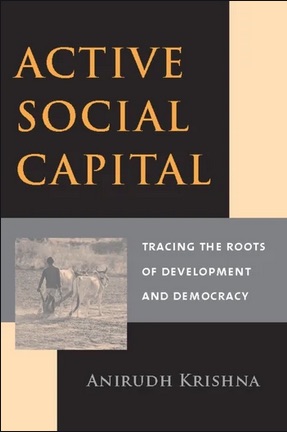The idea of social capital allows scholars to assess the quality of relationships among people within a particular community and show how that quality affects the ability to achieve shared goals. With evidence collected from sixty-nine villages in India, Krishna investigates what social capital is, how it operates in practice, and what results it can be expected to produce.
Does social capital provide a viable means for advancing economic development, promoting ethnic peace, and strengthening democratic governance? The world is richer than ever before, but more than a fifth of its people are poor and miserable. Civil wars and ethnic strife continue to mar prospects for peace. Democracy is in place in most countries, but large numbers of citizens do not benefit from it. How can development, peace and democracy become more fruitful for the ordinary citizen? This book shows how social capital is a crucial dimension of any solution to these problems.
- Contents
- Preface
- 1. Introduction: Can Social Capital Help Support Development and Democracy?
- 2. How Might Social Capital Matter?
- 3. Structre and Agency: New Political Entrepreneurs and the Rise of Village-Based Collective Action
- 4. Measuring Social Capital
- 5. Understanding Economic Development: Why Do Some Villages Develop Faster than Others?
- 6. Examining Community Harmony: Why Are Some Villages Peaceful and Others Not?
- 7. Democratic Participation in Rural North India: Social Capital and New Political Entrepreneurs
- 8. Conclusion
- APPENDICES
- A: Methodology
- B: Details of 60 Villages in Rajasthan
- C: Map of Village Balesariya
- Notes
- References
- Index

